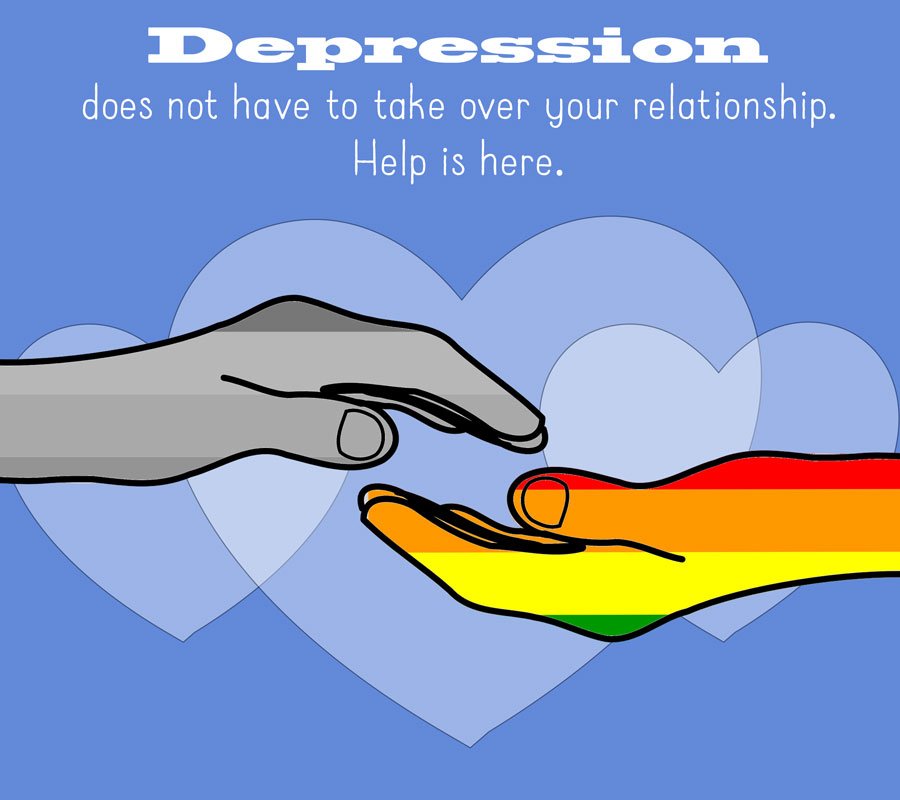Relationships and depression can be linked. Sometimes, the relationship itself triggers someone’s depression. However, people can also experience depression even if their relationship is a happy one.
People may use the term “relationship depression” to describe depression that develops due to relationship difficulties. However, this is not a distinct medical condition.
This article will explore in more detail at the relationship depression. It will explore how relationships can affect depression and vice versa.
Depression is a mental health condition that affects millions of people worldwide. It is a type of mood disorder. Although some people use the word “depression” informally to describe feeling sad, depression as a medical condition is different.
People with depression can experience a number of persistent mental and physical symptoms, including:
- Feeling sad, worthless, or guilty
- Feeling irritable or angry
- Low self-esteem
- Tiredness and fatigue
- Difficulty concentrating or making decisions
- Eating more or less than usual
- Sleeping more or less than usual
- Loss of interest in enjoyable activities, such as hobbies or socializing
- Loss of libido, or sex drive
- Suicidal thoughts
These symptoms can range from mild to debilitating. To receive a diagnosis of depression, these symptoms must occur most of the day or all day, nearly every day, for a consistent period of time.
There are several types of depression. Some are related to physical health conditions, such as endocrine disorders or premenstrual dysphoric disorder, which is related to the menstrual cycle. However, other types can be caused or exacerbated by events happening in a person’s current life or events that affected them in the past. Sometimes, relationships can be a trigger.
How can relationships affect depression?
Although relationships can be a source of contentment, they can also be a source of dissatisfaction or conflict. This can have an impact on people’s mental health.
Some examples of situations that may contribute to relationship depression include:
Infidelity
Infidelity is one potential cause of relationship-related distress. People who are in exclusive relationships can feel humiliated and betrayed if their partner is unfaithful to them. This can be emotionally traumatic.
Infidelity can also raise the risk of suicidal thoughts and symptoms that resemble those of post-traumatic stress disorder. It is seen that learning of a partner’s infidelity increases the likelihood of a depressive episode in people who were at higher risk of the condition.
Abuse
All forms of intimate partner abuse are positively correlated with new cases of depression in females. Males who experienced abuse were more likely to develop new cases of anxiety.
Although abuse can seem rare or extreme, it is actually very common. This is especially true of emotional abuse, which can include:
- Controlling, possessive, or manipulative behaviour
- Behaviour designed to subdue, punish, or break someone down
- Isolating someone from their friends and family
Long distance relationships
Although many long-distance relationships are fulfilling, they can also be challenging. People can miss their partner during long periods apart, or they may experience anxiety about the relationship and its future.
Relationship breakdown
The breakdown of a significant relationship can cause major upheaval in a person’s life as well as difficult emotions, such as anger, loneliness, or grief. It can also mean that a person has to move out of their home, which, in some cases, means living separately from their children or pets.


